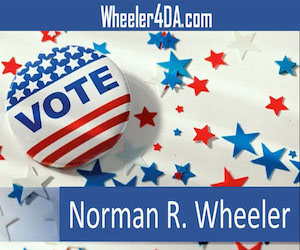By Elaine Carlson
In a letter I told my sister, "I am now a columnist." I wanted her to know I started writing for The Grant County Beat. I would have told my mother if she had been alive.
Soon I thought I needed some tools to help me with the writing process.
I ordered online a "Used Good" paperback copy of The American Heritage Dictionary Fourth Edition 2001. I already had a 1981 edition of that dictionary but not only was it older it was difficult to use because it was bulky and heavy. With a paperback it is easy to look up the spelling of words and that is what I need because I am a lousy speller.
Next, I decided to get a style manual --- I thought it would be the almost perfect tool for me as a writer. A long time ago I had a copy of the Chicago Manual Of Style (CMS) and liked it. The GCB Editor Mary Alice Murphy told me she uses the AP Stylebook (AP). I spent almost four hours reading book reviews and looking at Amazon Customer Reviews (AP and the CMS are not the only authoritative guides to English usage for sale).
I finally decided to buy CMS (15th Edition 2003). I think I made a good decision. It is well organized and the Table of Contents and the Index are easy to use.
From "Commas" (Punctuation): "When a conjunction joins the last two elements in a series, a comma – known as the serial or the series comma or the Oxford comma – should appear before the conjunction. Chicago strongly recommends this widely practiced usage, blessed by Fowler and other authorities, since it prevents ambiguity."
Bryan Nelson is critical of AP for rejecting the use of the serial or Oxford comma ("AP Style Does Not Use Serial or Oxford Commas"). He explains how that comma was dropped because "every character cost money to print. If there was a way to eliminate one it was worth it. So, the serial, or Oxford comma, was eliminated and money was saved without anyone being able to complain about it being wrong."
He says the AP first opposed the serial or Oxford comma sixty years ago. Partly because the financial incentive no longer exists he hopes "the day will come when the AP Stylebook decides that function is more important than tradition, and everyone everywhere will require the serial comma."
Five readers sent comments. Tonia said, "Thank you for this post. It's the first place I've found an explanation for why the AP style guides does not use the Oxford comma. We follow the AP at my work place, but we have an exception list. I'm happy to have a reason to add the Oxford comma to this list. Thanks again."
I was glad to see the instructions on the placement of commas in the CMS and Bryan Nelson's spirted argument against the AP. When I was young, I wondered why there wasn't a comma between the last two words in a series. To me sentences didn't look right when they didn't have that last comma.
I admit I am not happy with some of the CMS's positions on usage.
"Tribal Names. According to current preference, names of Native American Tribes form their plural by adding s. In earlier writings the s was often omitted (indeed, Webster gives the s form as the second spelling)." And goes on to give two examples.
"The Hopis of northeastern Arizona (not Hopi)" and "Many Cherokees work in this town
I grew up with and have gotten used to the practice expressed "In earlier writings" and that s at the end of tribal names. I would have written their examples as "The Hopi of northeastern Arizona." and "Many Cherokee." Well maybe I will refer to Cherokees because I have seen that construction but I don't like the idea of adding an s to Hopi.
I wonder what the AP says about the plural of American Indians tribes.
After seeing an advertisement, I order Merriam-Webster's Everyday Language Reference Set. It comes with three books --- The Merriam-Webster Dictionary, Thesaurus, and Vocabulary Builder.
I mainly use a thesaurus as a spelling help. Sometimes it can be easier and quicker to look up a synonym than a word I don't know how to spell. The thesaurus I have now was made of cheap paper and all the pages are brown. I will be happy when I can toss it into the trash can.
I hardly ever use a thesaurus to search for a word to put into my writing. In an expository writing class I took in college when the instructor was giving us a rundown on the various reference books he told us to be careful about using a thesaurus because "You don't want to end up sounding like William F. Buckley."
I look forward to getting that three-book set. I think it might be good to have another dictionary on hand. Also, maybe sometime I might want to sit down and work on building my vocabulary.














